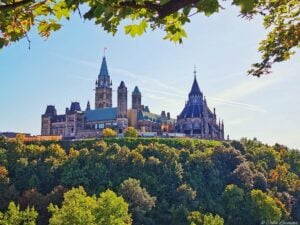Researchers have released a report saying that governments around the world are giving a false message about the work they are doing to protect vulnerable marine environments.
Rodolphe Devillers, a geography professor at Newfoundland’s Memorial University and one of the authors of a study released today in the journal Aquatic Conservation, says that when governments delegate areas for protection, they tend not to focus on hotspots of biodiversity, but rather areas where there is little economic interest from fishing or extractive industries.
“From our perspective, they are just taking low-hanging fruits,” Devillers says. “But these won’t protect much.”
He points to the example of Australia, where part of the study was conducted. Although that country is planning to protect more than 30 per cent of its waters — a relatively large portion in comparison to most of the world — it tends to focus on areas with low biodiversity farther out to sea while fishing continues near shore.
Devillers says many “protected” marine areas don’t prohibit activities like fishing and resource extraction. Commercial fishing is allowed on parts of Australia’s Great Barrier Reef, which is a hotbed for biodiversity and a UNESCO World Heritage site.
When it comes to Canada, Devillers says we are “far from being a leader” when it comes to marine conservation. The Department of Fisheries and Oceans (DFO) is planning a new protected area in the Laurentian Channel, but Devillers says there isn’t much actual benefit for biodiversity, especially when compared to areas like the coral off the southwest Grand Bank or an area of the Hudson Strait just east of the northern tip of Labrador.
While DFO spokesman David Walters says he couldn’t comment on a study he hasn’t seen yet, he says the government is committed to protecting coral and sponge in alignment with international fisheries conventions. “The Government of Canada ensures the protection of Canada’s marine biodiversity using a variety of management tools across many sectors, including but not limited to establishing marine protected areas.”
On the global front, Devillers says that marine areas don’t come close to receiving the amount of protection that terrestrial national parks do. While 10 per cent of international lands are protected by national parks, only two to three per cent of water is being protected.
Devillers says it’s not so much about the raw percentage if the habitats that need the most protection are being ignored. “Success in conservation is not about how much percentage you protect but how much difference you make to protect species.”
He says that it’s particularly important in terms of conserving the declining marine biodiversity of the planet. “I sometimes wonder how society decades from now will reflect on what we are currently doing.”




